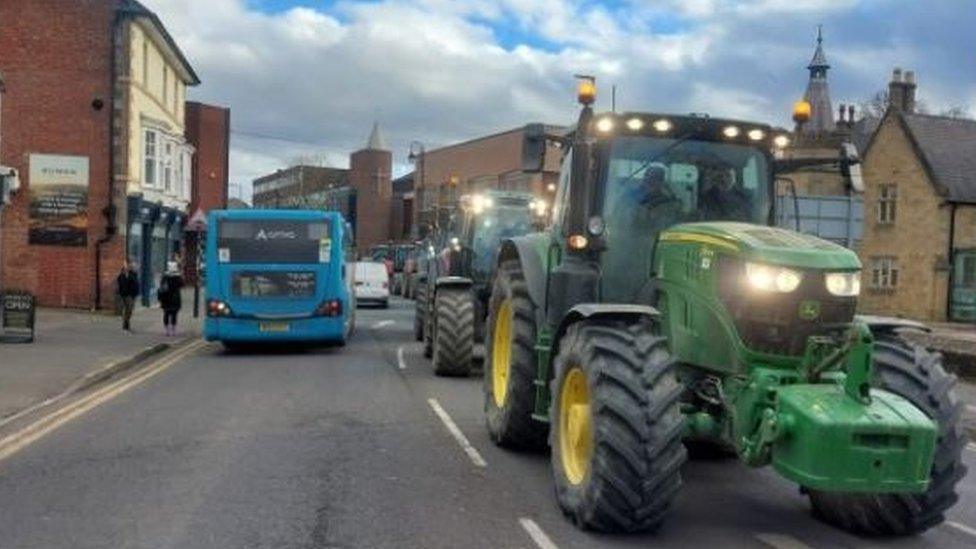Farming review announced as Senedd protest looms
- Published
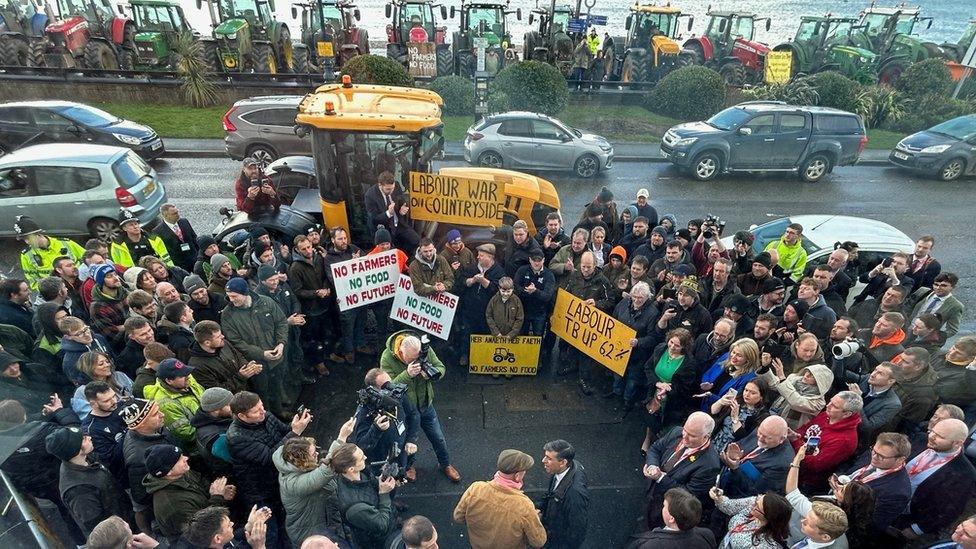
Protesting farmers arrived outside Welsh Conservative conference on Friday
An agricultural policy will be reviewed, the Welsh government has said, ahead of a protest at the Senedd.
Farmers are unhappy with proposals to change farm subsidies, which would include a requirement for 10% of agricultural land to be used for trees.
They would also be required to earmark another 10% for wildlife habitat, and plan to protest in Cardiff Bay.
The Welsh government has been criticised for not listening to their concerns.
Farmers have held protests across Wales in the last few weeks, including a convoy of 100 tractors and farm vehicles in a go-slow through Newtown, Powys, during a Labour leadership debate.
National Farmers Union Cymru President Aled Jones said Welsh farmers were currently subject to numerous and significant pressures.
"There is rising unrest within the Welsh agricultural community and that is manifesting itself in many different forms, including tomorrow's [Wednesday's] demonstration in Cardiff Bay," he said in a statement.
Prime Minister Rishi Sunak, who has criticised Wales' farm subsidy plans, told protestors "we've got your back" when they turned up at the Welsh Conservative conference in Llandudno, Conwy, on Friday.
A consultation on the Sustainable Farming Scheme is ongoing, but as a result of the strong views already expressed on the issue, the Welsh government has announced a number steps to try and mitigate the concerns of farmers.
In a joint statement, the Minister for Rural Affairs Lesley Griffiths and First Minister Mark Drakeford said the environmental requirements of the scheme would be targeted "at improving the economic resilience of farms".
"Ensuring woodland and habitat requirements do not make farms unviable," the statement said.
It added other means of capturing carbon, aside from planting trees, will be looked at and that farm payments would be "distributed fairly and accessible to all".
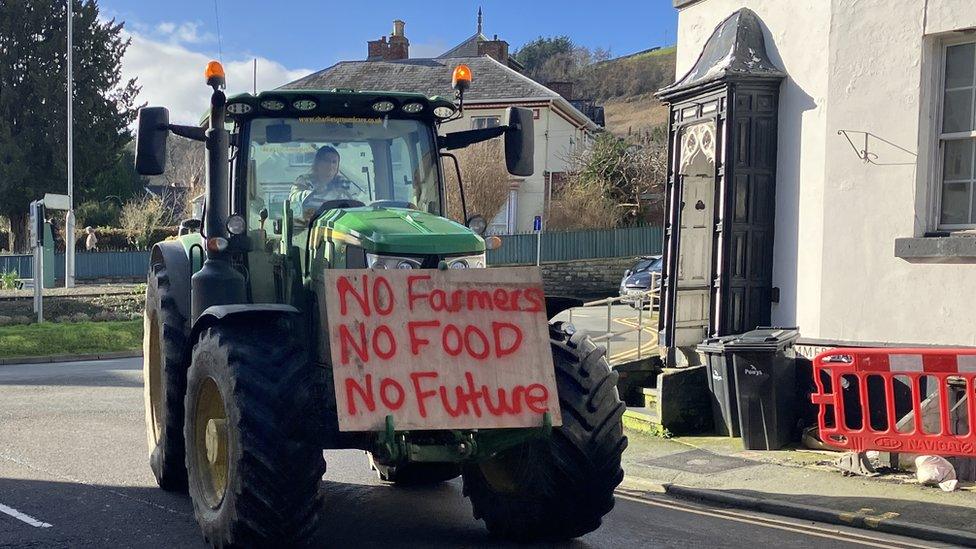
Farmers sounded their horns as they drove through Newtown in Powys to protest the scheme
The 10% figure for trees has been called arbitrary, with many farmers saying it would make their business unviable.
Last week, Mr Drakeford angered farmers by saying it was not up to farmers how subsidies were spent and blamed those who voted for Brexit for the changes to subsidies.
He argued that the farm subsidy scheme was necessary in the fight against climate change.
But as farmers prepare to bring their protests to the Senedd, the Welsh government has also announced a review of their policies on tuberculosis (TB) in cattle and agricultural pollution - key concerns for many in the industry.
Mr Drakeford said he recognised the "devastation" that TB can bring to a farming family, and will look again at the policy of slaughtering infected cattle on farms.
"The slaughter of cattle on farms can be particularly distressing to those who witness it and can have a detrimental impact on farmers' and farmworkers' wellbeing and mental health," he said.
Speaking in the Senedd chamber, he said his government was committed to dealing with agricultural pollution, stressing that "in five on the six most affected rivers in Wales, agricultural pollution is the single biggest contributor to the state of the river and we cannot look the other way".
But he also promised a review of agricultural pollution regulations.
Plaid Cymru's rural affairs spokesperson Llyr Gruffydd welcomed the announcements, but said that "only an unequivocal statement of a pause and a review of the Sustainable Farming Scheme will reassure the sector that the government is genuinely listening and responding meaningfully to the concerns expressed".
Conservative MS Sam Kurtz said there was a "growing frustration and anger" amongst farmers and called on Ms Griffiths to "pause the consultation and take the heat out of the situation".


Today's statement addresses some of the key issues raised by farmers during mass protests in recent weeks.
As well as some of the demands made by unions in talks with ministers last week.
Notably they say they'll consider an "evidence-based review" of how farms can soak in carbon - in other words are there other options beside trees?
And there's a hint the introduction of the controversial new post-Brexit subsidy scheme could be delayed.
The public consultation closes next week and a new first minister, set to be in post later in March, "will want to carefully review the results... and consider in detail the pace of implementation".
There's the promise of an extra £20m to help farms adhere to stricter regulations on storing and spreading slurry and fertiliser, designed to protect water quality.
And the government's new taskforce on bovine TB - which we already knew about - will be asked to prioritise looking at the emotive issue of infected cattle having to be slaughtered on farm in some instances, in front of their owners.
Related topics
- Published23 February 2024

- Published18 February 2024
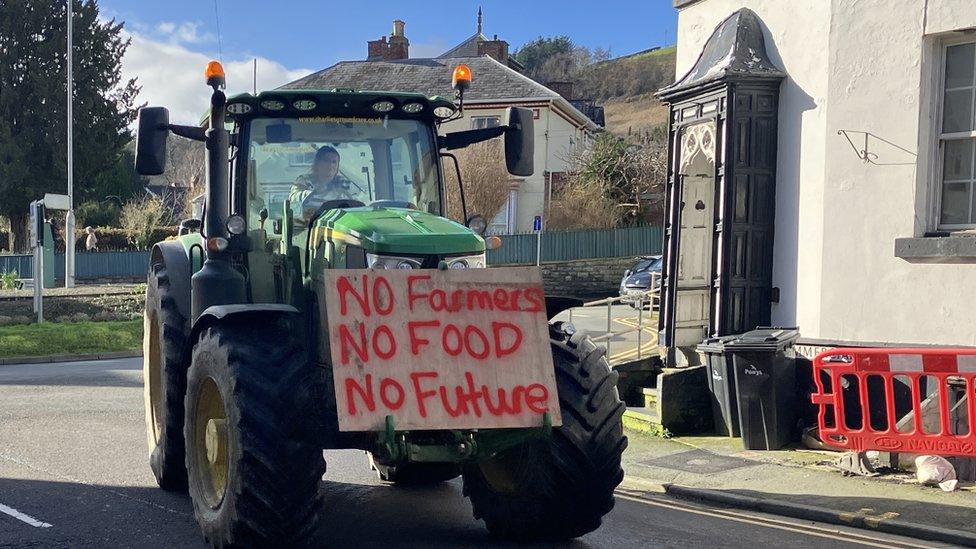
- Published28 February 2024
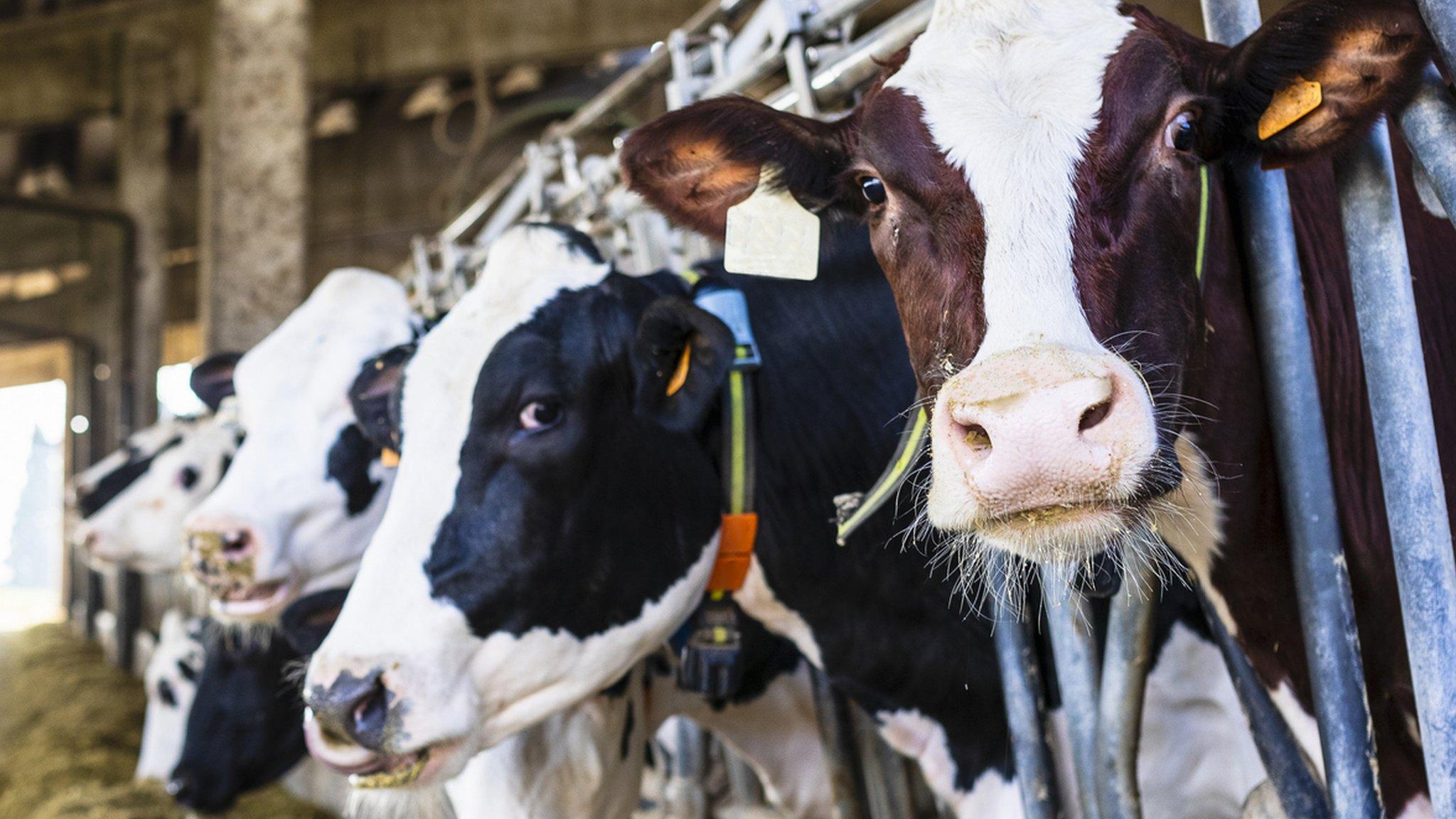
- Published16 February 2024
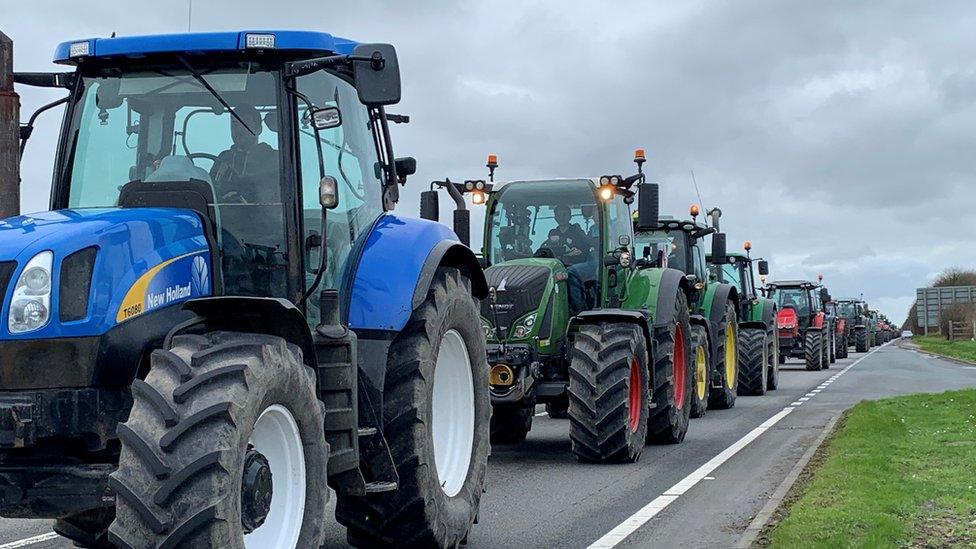
- Published2 February 2024

- Published19 February 2024
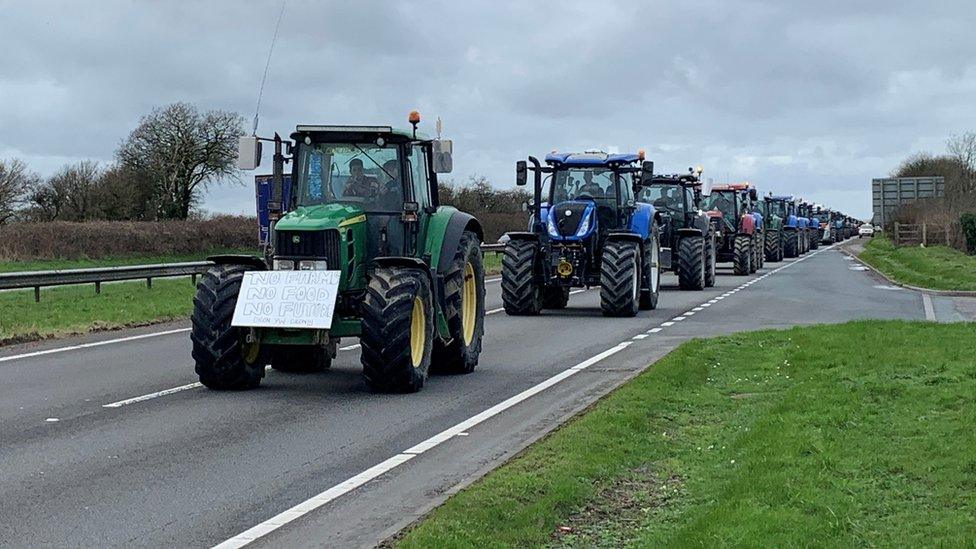
- Published21 February 2024
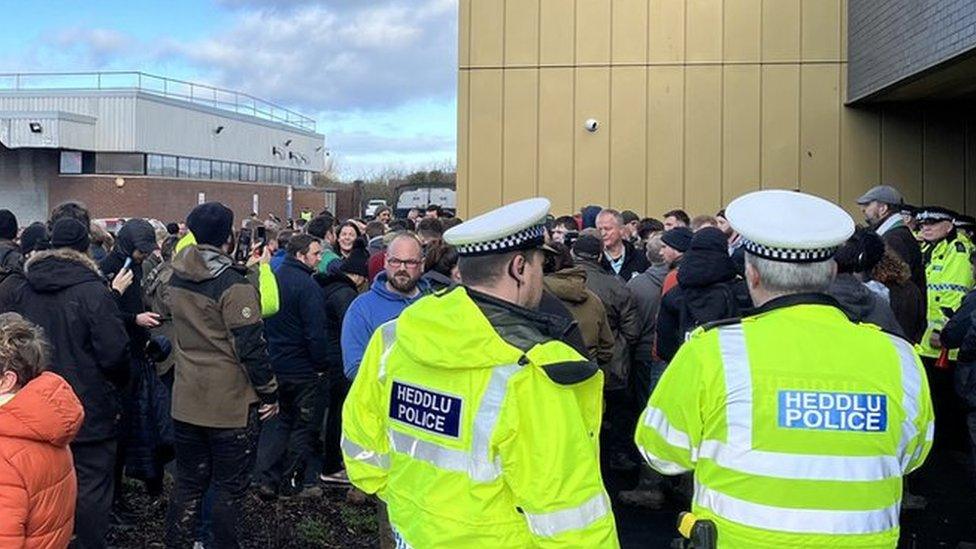
- Published18 February 2024
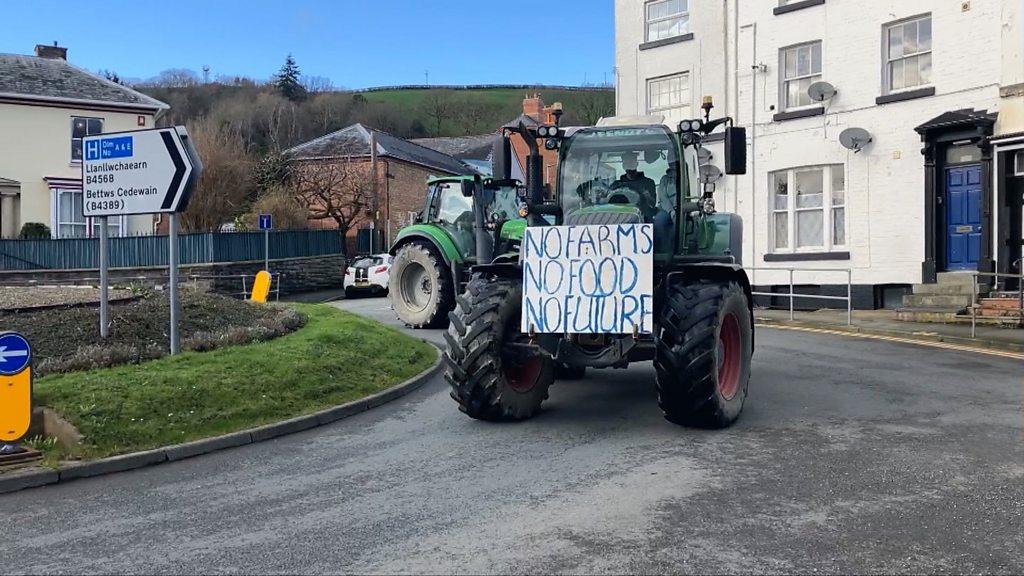
- Published12 February 2024
